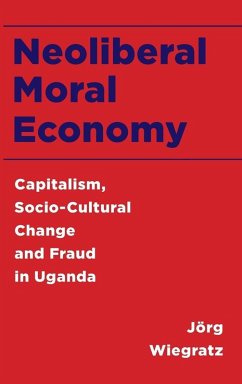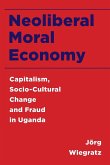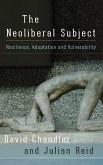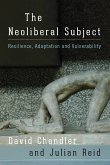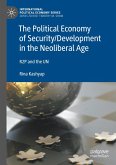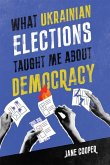- Gebundenes Buch
- Merkliste
- Auf die Merkliste
- Bewerten Bewerten
- Teilen
- Produkt teilen
- Produkterinnerung
- Produkterinnerung
This text examines the socio-cultural and especially moral repercussions of embedding neoliberalism in Africa, using the case of Uganda.
Andere Kunden interessierten sich auch für
![Neoliberal Moral Economy Neoliberal Moral Economy]() Jörg WiegratzNeoliberal Moral Economy77,99 €
Jörg WiegratzNeoliberal Moral Economy77,99 €![The Neoliberal Subject The Neoliberal Subject]() David ChandlerThe Neoliberal Subject206,99 €
David ChandlerThe Neoliberal Subject206,99 €![The Neoliberal Subject The Neoliberal Subject]() David ChandlerThe Neoliberal Subject72,99 €
David ChandlerThe Neoliberal Subject72,99 €![Germany ¿ The ¿Gotham City¿ of Europe? Germany ¿ The ¿Gotham City¿ of Europe?]() Stefan G. RaulGermany ¿ The ¿Gotham City¿ of Europe?17,95 €
Stefan G. RaulGermany ¿ The ¿Gotham City¿ of Europe?17,95 €![Vote buying of Electorates:A Case Study of Parliamentary By- Elections Vote buying of Electorates:A Case Study of Parliamentary By- Elections]() Jimmy ChuluVote buying of Electorates:A Case Study of Parliamentary By- Elections39,99 €
Jimmy ChuluVote buying of Electorates:A Case Study of Parliamentary By- Elections39,99 €![The Political Economy of Security/Development in the Neoliberal Age The Political Economy of Security/Development in the Neoliberal Age]() Rina KashyapThe Political Economy of Security/Development in the Neoliberal Age97,99 €
Rina KashyapThe Political Economy of Security/Development in the Neoliberal Age97,99 €![What Ukrainian Elections Taught Me about Democracy What Ukrainian Elections Taught Me about Democracy]() Jane CooperWhat Ukrainian Elections Taught Me about Democracy22,99 €
Jane CooperWhat Ukrainian Elections Taught Me about Democracy22,99 €-
-
-
This text examines the socio-cultural and especially moral repercussions of embedding neoliberalism in Africa, using the case of Uganda.
Hinweis: Dieser Artikel kann nur an eine deutsche Lieferadresse ausgeliefert werden.
Hinweis: Dieser Artikel kann nur an eine deutsche Lieferadresse ausgeliefert werden.
Produktdetails
- Produktdetails
- Verlag: Globe Pequot Publishing Group Inc/Bloomsbury
- Seitenzahl: 388
- Erscheinungstermin: 17. November 2016
- Englisch
- Abmessung: 235mm x 157mm x 27mm
- Gewicht: 779g
- ISBN-13: 9781783488537
- ISBN-10: 1783488530
- Artikelnr.: 44581398
- Herstellerkennzeichnung
- Libri GmbH
- Europaallee 1
- 36244 Bad Hersfeld
- gpsr@libri.de
- Verlag: Globe Pequot Publishing Group Inc/Bloomsbury
- Seitenzahl: 388
- Erscheinungstermin: 17. November 2016
- Englisch
- Abmessung: 235mm x 157mm x 27mm
- Gewicht: 779g
- ISBN-13: 9781783488537
- ISBN-10: 1783488530
- Artikelnr.: 44581398
- Herstellerkennzeichnung
- Libri GmbH
- Europaallee 1
- 36244 Bad Hersfeld
- gpsr@libri.de
Jörg Wiegratz is Lecturer in Political Economy of Global Development at the University of Leeds. He researches the political economy and moral economy of neoliberalism in Africa and elsewhere, with a focus on the topics of moral restructuring, economic fraud, anti-fraud measures and populism. In the past he has researched global value chains and industrial development, predominantly with an empirical focus on Uganda. He previously worked as a researcher and consultant in Uganda for the UN Industrial Development Organization, the Government of Uganda's Ministry of Trade, Tourism and Industry and the German Agency for Technical Cooperation, and a Visiting Scholar at the Economic Policy Research Centre, Kampala. He is a member of the editorial working group of Review of African Political Economy; here, he coordinates the project on Economic trickery, fraud and crime in Africa. He is the author of Uganda's Human Resource Challenge: Training, Business Culture and Economic Development (Fountain Publishers, 2009) and co-editor of Neoliberalism and the Moral Economy of Fraud (Routledge, 2016, with David Whyte) and Neoliberal Uganda (Zed, 2017, with Giuliano Martiniello and Elisa Greco). He has also published articles in New Political Economy and Review of African Political Economy.
Introduction : Rethinking moral economy: capitalism and the question of
morals / 1. : Market-society-making: neoliberalism as a cultural programme
/ 2. Introducing Uganda: conflict, change and the neoliberal reforms / 3.
The making of a neoliberal moral economy: tracing the moral contours of the
new Uganda / 4. Neoliberalised markets and the intensification of fraud /
5. Neoliberal morals as weapons of the strong - the moral economy of power
/ 6. Neoliberalised worlds of business - the moral power of money / 7.
Exploiting vulnerability: The moral economy of business with the squeezed
bottom / 8. Seeing the neoliberal state: public-private partnerships of
fraud / 9. The struggle for de-neoliberalisation: cultural resistance,
moral turn-arounds, and the politics of moral economy / 10. Conclusion:
Locking-in the moral order of capitalism: market society forever?
morals / 1. : Market-society-making: neoliberalism as a cultural programme
/ 2. Introducing Uganda: conflict, change and the neoliberal reforms / 3.
The making of a neoliberal moral economy: tracing the moral contours of the
new Uganda / 4. Neoliberalised markets and the intensification of fraud /
5. Neoliberal morals as weapons of the strong - the moral economy of power
/ 6. Neoliberalised worlds of business - the moral power of money / 7.
Exploiting vulnerability: The moral economy of business with the squeezed
bottom / 8. Seeing the neoliberal state: public-private partnerships of
fraud / 9. The struggle for de-neoliberalisation: cultural resistance,
moral turn-arounds, and the politics of moral economy / 10. Conclusion:
Locking-in the moral order of capitalism: market society forever?
Introduction : Rethinking moral economy: capitalism and the question of
morals / 1. : Market-society-making: neoliberalism as a cultural programme
/ 2. Introducing Uganda: conflict, change and the neoliberal reforms / 3.
The making of a neoliberal moral economy: tracing the moral contours of the
new Uganda / 4. Neoliberalised markets and the intensification of fraud /
5. Neoliberal morals as weapons of the strong - the moral economy of power
/ 6. Neoliberalised worlds of business - the moral power of money / 7.
Exploiting vulnerability: The moral economy of business with the squeezed
bottom / 8. Seeing the neoliberal state: public-private partnerships of
fraud / 9. The struggle for de-neoliberalisation: cultural resistance,
moral turn-arounds, and the politics of moral economy / 10. Conclusion:
Locking-in the moral order of capitalism: market society forever?
morals / 1. : Market-society-making: neoliberalism as a cultural programme
/ 2. Introducing Uganda: conflict, change and the neoliberal reforms / 3.
The making of a neoliberal moral economy: tracing the moral contours of the
new Uganda / 4. Neoliberalised markets and the intensification of fraud /
5. Neoliberal morals as weapons of the strong - the moral economy of power
/ 6. Neoliberalised worlds of business - the moral power of money / 7.
Exploiting vulnerability: The moral economy of business with the squeezed
bottom / 8. Seeing the neoliberal state: public-private partnerships of
fraud / 9. The struggle for de-neoliberalisation: cultural resistance,
moral turn-arounds, and the politics of moral economy / 10. Conclusion:
Locking-in the moral order of capitalism: market society forever?

